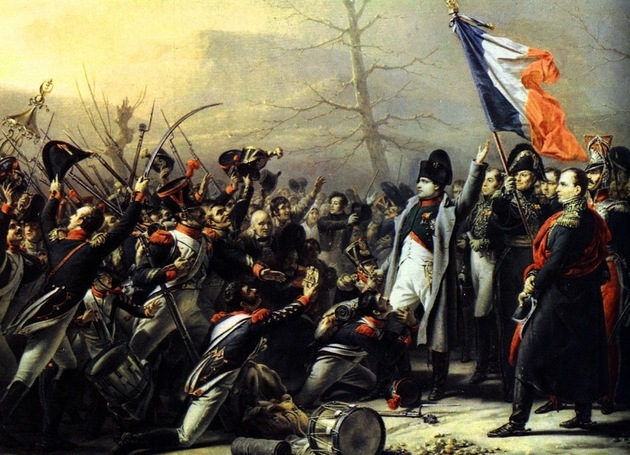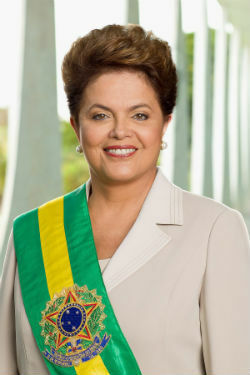O Enlightenment it was an intellectual movement that became popular in the 18th century, known as the "Century of Enlightenment".
Emerging in France, the main characteristic of this current of thought was to defend the use of reason over faith to understand and solve society's problems.
Enlightenment Summary
The Illuminists believed that they could restructure the society of the Ancien Régime. They defended the power of reason over faith and religion and sought to extend rational criticism to all fields of human knowledge.
Through the union of philosophical, social and political schools of thought, they emphasized the defense of rational knowledge to deconstruct religious prejudices and ideologies. These, in turn, would be surpassed by the ideas of human progress and perfectibility.
In their works, Enlightenment thinkers argued against mercantilist and religious determinations..
They were also averse to absolutism and the privileges given to the nobility and clergy. These ideas were considered controversial, as this undermined the foundations of the political and social structure of the Ancien Regime.
In this way, philosophers such as Diderot and D'Alembert sought to gather all the knowledge produced in the light of reason in a compendium divided into 35 volumes: the Encyclopedia (1751-1780).
The publication of the Encyclopedia it had the participation of several illuminist exponents such as Montesquieu and Jean-Jacques Rousseau.
His ideas spread mainly among the bourgeoisie, which held most of the economic power. However, they had nothing equivalent in political power and were always on the sidelines of decisions.
Characteristics of the Enlightenment
The Enlightenment rejected the medieval heritage and therefore called this period the "Dark Ages". It was these thinkers who invented the idea that nothing good had happened at this time.
Let's look at the main Enlightenment ideas on economics, politics and religion below.
Economy
as opposed to Mercantilism, practiced during the Ancien Regime, the Enlightenment affirmed that the State should practice liberalism. Rather than intervening in the economy, the state should let the market regulate it. These ideas were mainly exposed by Adam Smith.
Some, like Quesnay, argued that agriculture was the nation's source of wealth, to the detriment of commerce, as advocated by mercantilists.
As for private property, there was no consensus among the Enlightenment. John Locke emphasized that property was a natural right of man, while Rousseau pointed out that this was the reason for humanity's ills.
Politics and Society
contrary to Absolutism, the Enlightenment asserted that the king's power should be limited by a council or a constitution.
The writer Montesquieu, for example, defended a state model where the government would be divided into three powers: Legislative, Executive and Judiciary. Thus, there would be balance and less power concentrated in one person. This idea of government has been adopted by almost every country in the western world.
Likewise, subjects should have more rights and be treated equally. This meant that everyone should pay taxes and minorities, like Jews, had to be recognized as full citizens. It must be remembered that under the Ancien Regime, religious minorities such as Jews and Muslims were forced to convert or leave the countries where they were to escape persecution.
Although there were some pro-women voices and even Enlightenment thinkers such as Émilie du Châtelet or Mary Wollstonecraft, no man really advocated empowering them.
Religion
Religion was heavily criticized by several Enlightenment thinkers.
The majority advocated limiting the privileges of clergy and church; as well as the use of science to question religious doctrines.
There were those who understood the power of religion in the formation of human beings, but preferred that there were two distinct spheres: religion and the State. Likewise, some Illuminists advocated the end of the church as an institution and faith should be an individual expression.
Enlightened Despotism
Enlightenment ideas spread to such an extent that many rulers sought to implement Enlightenment-based measures to modernize their respective states.
This happened without the monarchs abdicating their absolute power, just reconciling it to popular interests. Thus, these rulers were part of the Enlightened Despotism.
Enlightenment in Brazil
The Enlightenment arrived in Brazil through publications that were smuggled to the colony.
Likewise, several students who went to the University of Coimbra also came into contact with Enlightenment ideas and started to spread them.
These ideas began to question the colonial system itself and foster the desire for change. Thus, the movement of Lights influenced the Inconfidência Mineira (1789), the Conjuração Baiana (1798) and the Pernambuco Revolution (1817).
Consequences of the Enlightenment
Enlightenment ideals had serious sociopolitical implications. As an example, the end of colonialism and absolutism and the implementation of economic liberalism, as well as religious freedom, which culminated in movements such as the French Revolution (1789).
Leading Enlightenment Thinkers
Below are the main Enlightenment Philosophers:
- Montesquieu (1689-1755)
- Voltaire (1694-1778)
- Diderot (1713-1784)
- D'Alembert (1717-1783)
- Rousseau (1712-1778)
- John Locke (1632-1704)
- Adam Smith (1723-1790)
We have more texts on Enlightenment for you:
- Liberalism
- Atheism
- Social contract
- Old Regime
- Questions about French Revolution


